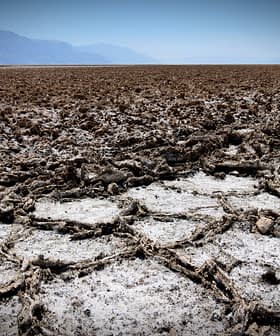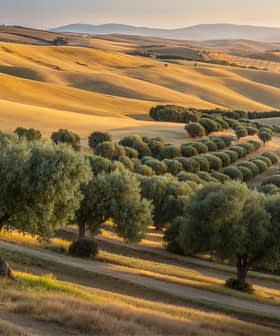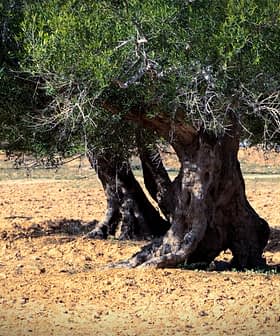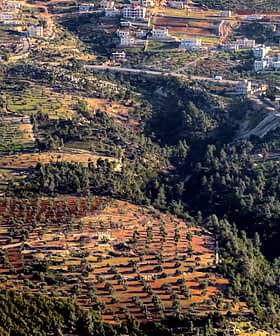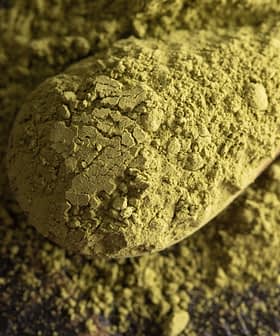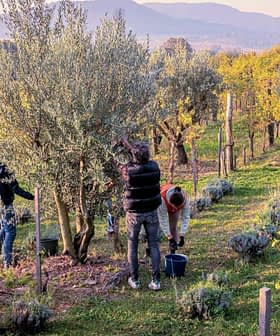Europe Reconsiders Pesticide Ban as Global Food Crisis Looms
The Commission had proposed an ambitious plan to cut pesticide use in half by 2020. Nearly half of E.U. member states oppose the move.
 Spraying grapevines in France
Spraying grapevines in France European agriculture ministers are concerned that reducing pesticide use in the EU could impact crop yields, especially during uncertain times. The proposed goal to cut pesticide use in half by 2030 has faced criticism at the recent Agriculture and Fisheries Council meeting in Brussels, with member states emphasizing the need for sustainable alternatives and considering differences in geography and climate before imposing restrictions. The proposed regulations aim to reduce chemical use in agriculture by setting national reduction targets, enforcing environmentally friendly pest control, and providing funds for farmers to transition to other forms of pest control, but face opposition from some member states.
Agriculture ministers have warned that significantly reducing pesticide use in the European Union could affect crop yields during a highly uncertain time.
An ambitious goal proposed by the European Commission to cut pesticide use in half by 2030 has been criticized by member states at the Agriculture and Fisheries Council (Agrifish), which recently took place in Brussels.
Controlling a disease without synthetic molecules might be challenging, but it is necessary.
At the meeting, ministers emphasized “the need for viable sustainable alternatives to chemical pesticides before setting obligatory reduction targets.”
They added that the new regulations should also consider “the differences in geography, climate and starting points in different member states” before imposing restrictions.
See Also:Researchers Reintroduce Bats to Andalusian Olive Groves to Combat PestsThey further stressed that “sustainability should not be sought at the expense of food security or of the competitiveness of E.U. agriculture, especially in the current context of the Russian aggression against Ukraine.”
The emerging divisions among the 27 agricultural ministers will likely have a significant impact on new regulation being worked on by the European Commission. The goal of the regulation is to reduce the use of chemicals in agriculture.
The proposed regulation asks governments to set national reduction targets and enforce environmentally friendly pest control through integrated pest management practices with pesticides used as a measure of last resort.
The rules also stipulate a complete ban of pesticide use in parks, playgrounds, schools and ecologically-sensitive areas.
Finally, the proposed rules allow governments to use funds from the Common Agricultural Policy (CAP) to cover farmers’ costs as they transition to other forms of pest control.
The strongest opposition to the proposed regulations came from Spain, Portugal, Malta, Luxembourg, Slovakia, Slovenia, Poland, Latvia, Lithuania, Estonia, Bulgaria and Hungary.
Spain’s agriculture minister warned that prohibiting pesticides in ecologically-sensitive areas could allow them to become breeding grounds for pests. Slovenia’s minister added that farmers in these areas would have a significant disadvantage due to the prohibitions.
However, Stella Kyriakides, the European Commissioner for Health and Food Safety, defended the proposal and said long-term food security and resilience require a change of course regarding the use of pesticides.
“We are not banning pesticide use,” she said. “The range of biological and low-risk alternatives is progressively increasing on the market, with more approvals and more streamlined rules, to help the farmers’ transition.”
“Continued use of research, innovation and new technologies will support the transition, too,” she added. “Russia’s invasion of Ukraine means we must adapt to new realities. But we cannot let that disrupt our sustainability drive.”
Further slashing pesticide use will also affect olive growers, many of whom opposed the October 2021 ban on the use of dimethoate.
The chemical is widely considered to be the only efficient line of defense against the olive fruit fly in olive groves. Some farmers had lamented that the ban was implemented in the absence of viable alternative insect-control strategies.
“Over the years, synthetic active substances have nurtured an approach to plant protection more focused on the treatment of pathology and less on prevention, due to the availability on the market of pesticides such as dimethoate,” Gennaro Sicolo, the president of Italia Olivicola, a producer association, told Olive Oil Times.
“Controlling a disease without synthetic molecules might be challenging, but it is necessary,” he added. “The whole production process must take place while considering the protection of the environment and its natural resources.”
Sicolo argues that olive growers should take a more preventive approach to the spread of pests.
“That can trigger a virtuous circle where the wellbeing of the plant is at its center, in harmony with the soil and the whole environment that it inhabits,” he said. “We need to rebuild our [pest] control strategies.”
See Also:Researchers Identify Compounds to Stem the Spread of Verticillium WiltThe 2021 annual report from the European Food Safety Agency (EFSA) confirmed that pesticide use in olive production is quite low in Europe.
The majority of samples – 96 percent of 100,000 – analyzed by EFSA showed the presence of chemicals was well below the legal limit. Moreover, 57 percent of all samples did not contain quantifiable residue levels.
“An organic approach to farming unfortunately does not only depend on olive farmers,” Sicolo said. “A broader approach may and has to come from other areas where synthetic products are widely used. Olive farming can do its part even in the face of rising costs.”
According to the European Federation of Food, Agriculture, Tourism and Trade (EFFAT), the proposed regulation is a step forward but does not take into account specific impacts of pesticide use, such as those on workers’ health.
“The pesticide peril in Europe is real,” said Kristjan Bragason, EFFAT’s general secretary. “Exposure to pesticides and agrochemicals constitutes one of the major risks faced by farm workers, although still largely underestimated. Protecting workers’ health and safety means striving for truly sustainable agriculture.”
Natalija Svrtan, a campaigner for Pesticide-Free Agriculture, told Olive Oil Times that reversing 80 years’ worth of damage caused by pesticides to soil, biodiversity and human health would be a lengthy process.
“We cannot fix the problem overnight, by applying one simple solution,” she said. “Substantial changes must be done to our food-producing systems, and that needs to be done without any delay.”
“Biodiversity and healthy soils are the base input we need for the production of any type of food, and agro-ecology is the solution to preserving it,” Svrtan added. “This is shown by studies as well as by the rising number of organic producers, who successfully apply integrated pest management.”
According to Svrtan, integrated pest management includes several techniques such as intercropping, sub-sowing, multi-cropping, crop rotation, leaving fields fallow and constantly monitoring the appearance of pests.
“When prevention methods alone are not sufficient, preference is given to non-chemical alternatives, such as biological control of harmful insects, physical trapping and mechanical weeding,” she said.
Svrtan added that previous farming practices must be replaced with new ones to restore natural balance to human-sculpted landscapes.
“Many old olive trees were replaced with new cultivars that are prone to diseases and pest attacks,” she said. “Any interference in the natural order, in natural processes, will lead to creating more problems than it solves.”
“We need to be wise and live in harmony with nature, instead of fighting it, like we are doing now, by using pesticides and mineral fertilizers,” Svrtan added. “Even with new cultivars, techniques like pest monitoring, pest traps, mechanical methods of weeding and the use of repellents can at least decrease the use of pesticides and fertilizers.”
The E.U. Agrifish Council ended with a document signed by 12 member states which asked the E.U. to promote sustainability and a new approach to pesticides at a global level.
Should such a global transition to sustainability fail, the document states, “the Green Deal deployment and its strategies could provoke environmental loss and a drop in European agriculture yields.”
The new rules on pesticides will have to be approved both by the European Council and the European Parliament to come into force.
Share this article


